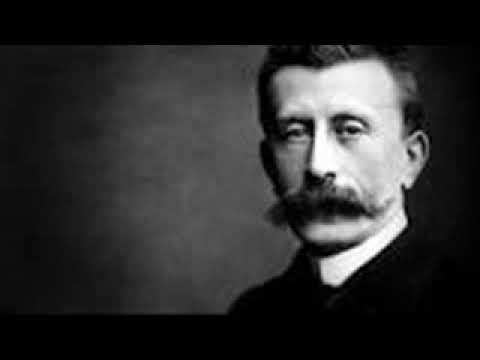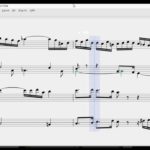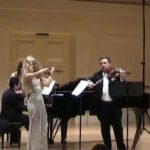It is my express wish that any and all financial compensation that may be my due from this video be instead directed towards all holders of copyright. Should a change in copyright holder or status render its removal necessary, I request only immediate notification prior to the filing of a claim with YouTube, and I will not hesitate to delete it as soon as possible.
Moritz Moskowski (1854-1925)
Piano Concerto No. 1 in B minor, Op. 3
I. Con spirito – Allegro 0:00
II. Adagio 10:36
III. Scherzo: Molto vivace 24:00
IV. Allegro sostenuto – Allegro con spirito 31:38
Ludmil Angelov, piano
Rzeszow Philharmonic Orchestra
Vladimir Kiradjiev, conductor
Moritz Moszkowski (1854 – 1925) was a German composer, pianist, and teacher of Polish-Jewish descent. He was born in Breslau, Prussia (now the Polish city of Wrocław), into a wealthy Polish-Jewish family whose parents had come to Breslau from Pilica, near Zawiercie, in 1854. He was an ardent Jew at a time when many Jews downplayed their Jewishness. He showed early talent from a very tender age, beginning his musical training at home until 1865, when his family moved to Dresden. There he continued his piano studies at the conservatory. He moved to Berlin in 1869 to continue his studies first at the Julius Stern’s Conservatory, where he studied piano with Eduard Franck and composition with Friedrich Kiel, and then at Theodor Kullak’s Neue Akademie der Tonkunst, where he studied composition with Richard Wüerst and orchestration with Heinrich Dorn. There he became close friends with the Scharwenka brothers, Xaver and Philipp. In 1871 he accepted Kullak’s offer to become a teacher in his academy. In 1873 Moszkowski made his first successful appearance as a pianist, and soon began touring the nearby cities in order to gain experience and establish his reputation. Two years later he was already playing his first piano concerto on two pianos with Franz Liszt at a matineé before a selected audience invited by Liszt himself. Retaining his post as a teacher at the Berlin conservatory from 1875, he had among his pupils Frank Damrosch, Ernest Schelling, Joaquín Turina, and Johanna Wenzel. Moszkowski then travelled successfully throughout Europe with the reputation of being an exceptional concert pianist and brilliant composer, having also gained some recognition as a conductor. In 1884 Moszkowski married the younger sister of pianist and composer Cécile Chaminade, Henriette Chaminade, with whom he had a son named Marcel and a daughter named Sylvia. By the mid-1880s, Moszkowski began suffering from a neurological problem in his arm and gradually diminished his recital activity in favor of composing, teaching and conducting. In 1899, the Berlin Academy elected him a member. He was many times invited by piano manufacturers to appear in the United States to show off their pianos, but despite being offered massive fees, he always refused. In 1908, by the age of 54, Moszkowski had already become a recluse as he began to suffer from poor health. His popularity began to fade and his career slowly went into decline. He stopped taking composition pupils because “they wanted to write like artistic madmen such as Scriabin, Schoenberg, Debussy, Satie …” His last years he spent in poverty for he had sold all his copyrights and invested the whole lot in German, Polish and Russian bonds and securities, which were rendered worthless on the outbreak of the war. Two of his former pupils, Josef Hofmann and Bernhard Pollack came to his aid. Through the intervention of Pollack, who sent new piano arrangements of Moszkowski’s opera Boabdil to Peters Publishing House in Leipzig, he collected an extra 10,000 francs camouflaged as royalties besides a gift of 10,000 marks and personal donations of 10,000 marks from Hofmann and 5,000 marks from himself. On 21 December 1924, when he was ill and heavily in debt, his friends and admirers arranged a grand testimonial concert on his behalf at Carnegie Hall, involving 15 grand pianos on stage. Ossip Gabrilowitsch, Percy Grainger, Josef Lhévinne, Elly Ney, Wilhelm Backhaus and Harold Bauer were among the performers, and Frank Damrosch conducted (Paderewski telegrammed his apologies). The concert netted US $13,275 (the equivalent of US $187,793.67 in May 2017), with one part transferred to the Paris branch of the National City Bank of New York in order to provide immediate relief from his financial problems, and an annuity purchased at the Metropolitan Life Insurance Company, whereby he would receive US $1,250 annually for the rest of his life. However, Moszkowski’s illness lingered and he died from stomach cancer on 4 March of the next year, before the supply of funds could reach him. The money raised went instead to pay his funeral expenses and to his wife and son.




